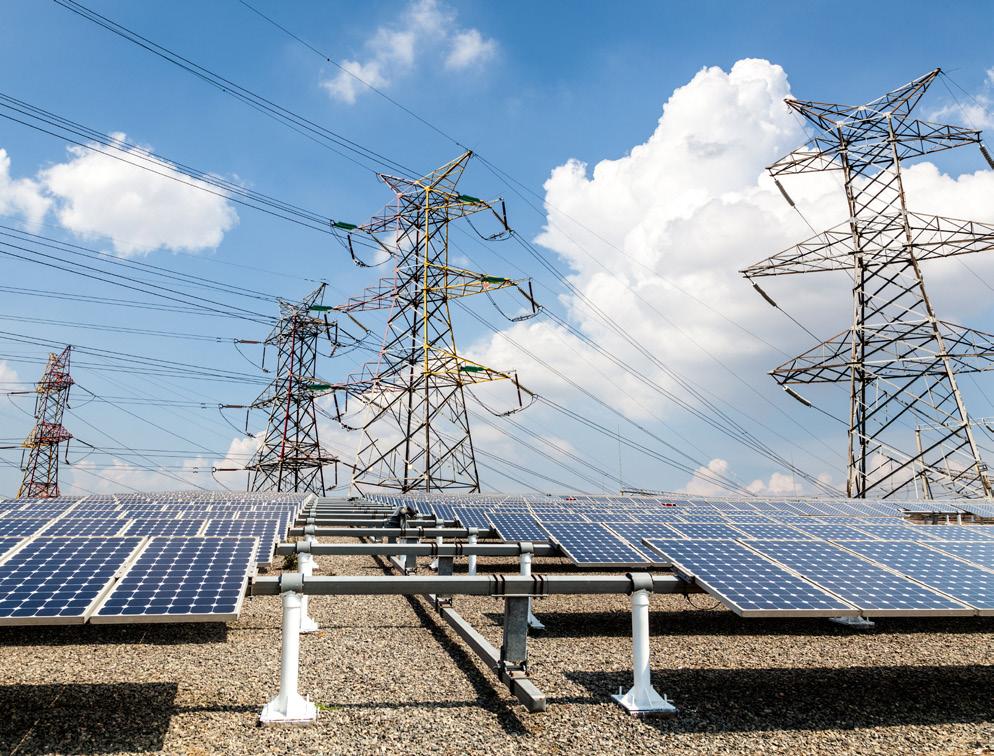
4 minute read
News
ECA calls for diesel and petrol vehicles to be banned by 2030
The UK Government is under pressure to bring forward the ban on new diesel and petrol vehicles to 2030, as the Electrical Contractors Association (ECA) threw its weight behind the plan.
Advertisement
Earlier this year, the UK Government brought forward its ban on diesel and petrol vehicles to 2035, having previously pledged 2040 as the cut off date. Now, the ECA, along with other organisations such as Friends of the Earth and the Committee on Climate Change, is calling for the ban to be brought forward further.
A 2030 cut off wouldn’t be unprecedented, many other countries around the world have already committed to that date. In fact, our closest neighbour, Ireland, has vowed to ban the sale of new diesel or petrol vehicles by 2030, joining both Sweden and the Netherlands. Norway is being even more ambitious, cutting off internal combustion engine sales in 2025.
While the ECA backs the 2030 date for the UK, rather than the more ambitious 2025 date, the organisation admits that bringing the ban forward by five years is only feasible if there is further investment in the UK’s electric charging infrastructure.
Is the UK electrical sector weathering the Covid-19 storm?
There’s no denying that Covid-19 has ravaged the UK economy with many jobs lost in various sectors. However, new data from Screwfix has suggested that UK tradespeople, which includes electricians, are weathering the storm, and are either at the same or better business levels than they were 12 months ago.
The research was undertaken independently on behalf of Screwfix, but appears to suggest that the UK electrical industry has been stunningly resilient throughout the Covid-19 pandemic. In fact, of the plumbers, electricians, builders and carpenters who were questioned in Screwfix’s Trade Pulse index, 56% say they are preparing as many quotes for jobs as they were this time last year, while a shocking 32% said they were busier than expected.
Additionally, thanks to the key worker designation bestowed upon electricians, many continued to work during the UK’s lockdown. While there aren’t specific numbers for those working in the electrical sector, some 72% of UK tradespeople continued to work during April, while that rose to 77% in May.
All these figures paint an optimistic future for the UK electrical sector over the next 12 months, with more than two thirds of respondents expecting business activity to remain the same or improve.





Eaton has announced that it is going to exit the mains lighting market in EMEA to focus on emergency lighting and fire
Importance of emergency lighting highlighted after death of 80-year-old man
The death of an 80-year-old man at Aberdeen lighting in the fire escape stairwell where
Market could have possibly been prevented victim Frank Finnie was discovered. had the company running the site installed Market Village Company Ltd was prosecutand maintained adequate emergency lighting. ed over a contravention of the Fire (Scotland)
The operator of Aberdeen Market, Market Act 2005, which calls for lighting of adequate
Village Company Ltd, has been fined £80,000 intensity in the case of failure of a building’s due to the company’s failure to maintain the normal lighting.
products. The company cites low margins in the commercial lighting sector as a key factor in its decision.
As part of the retreat from the mains lighting market, Eaton will be closing a 50,000 sqm factory in Doncaster that it acquired in 2012. The closure of the factory is set to result in the loss of 300 jobs, with 90 set to be saved as part of Eaton’s decision to have its emergency lighting products manufactured at another site nearby.

Smart meter installations recover from pandemic low
The number of smart meters installed in UK properties have recovered from a previous low due to the lockdown imposed by the Covid-19 pandemic, according to ElectraLink.
As the Covid-19 lockdown took effect in March, energy suppliers suspended the installation of smart meters. This suspension was eventually lifted in June, although homeowners didn’t seem to be in a rush to get new smart meters installed.
Early signs of a recovery are positive. July saw 152,000 meters installed, up 120% from the 69,000 meters that were installed during June. That’s still lower than the number of meters installed this time last year, however, with June’s figures down 67% on 2019 and July’s down 36%.
Energy suppliers had hoped to be closer to meeting the Government’s target of taking ‘all reasonable steps’ to install smart meters in all homes and small businesses by the end of 2020. However, the Covid-19 slump has put suppliers off target, meaning the Government had no choice but to extend the deadline until June 30, 2021.
46GW OF RENEWABLE ENERGY CAPACITY NEEDED TO KEEP PACE WITH
NET ZERO TARGETS

For the UK Government to achieve its goal of reaching net zero by 2050, the country will need to see an additional 46GW of renewable energy capacity installed by 2030. That’s according to Cornwall Insight’s ‘benchmark power curve’, which suggests that the 46GW of new capacity will come from 11GW of onshore wind, 10GW of solar and 25GW of offshore wind power.










